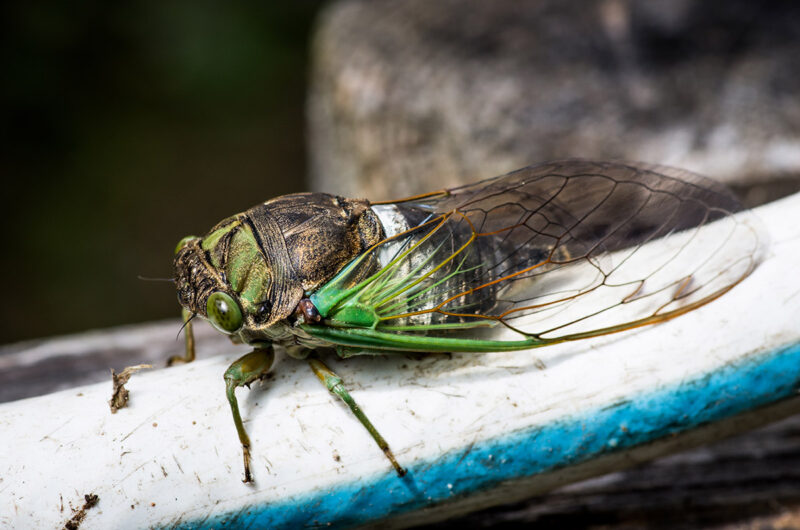
They are not everywhere, but in certain spots the screech of cicadas is piercing the treetops and smallmouth bass are quick to notice, moving in along the banks, hoping for a big fat bug to fall near them. That’s why “bugs”, popping bugs, are doing a number on the river bronze backs.
According to Alex McCrickard of the Division of Wildlife Resources, the annual cicadas in Virginia excite fly anglers the most when it comes to fishing terrestrials for smallmouth.
Says McCrickard, “Once soil temperatures get to approximately 65⁰F, annual cicadas will emerge from brooding underground, their exoskeletons left behind on trees and rocks as they enter the adult portion of their life cycle. This adult life stage only lasts four to six weeks and is the cicada’s chance to focus on finding a mate to start the life cycle over again. Males spend all of their time in the trees ‘singing’ in an effort to attract a female to mate. When the adult portion of the cicada’s lifecycle is nearing its end, these insects can be seen falling and erratically flying towards the ground. Some of these green and black bugs inevitably land in the water, creating the perfect opportunity for a smallmouth to take advantage of a large and nutritious meal.”
Years ago, I was fishing for trout with my good friend, Dave Gladwell, near Bedford where the cicadas were falling, and the trout were going nuts. I happened to have some large black sculpins in my fly box and Dave used one to land a 12-8 rainbow trout, a state record at the time.
A trout or smallmouth gets lots of nourishment from a single cicada, so if you hear them singing, tie on a big bug or a splashy top water bait and it’s “game on.”

